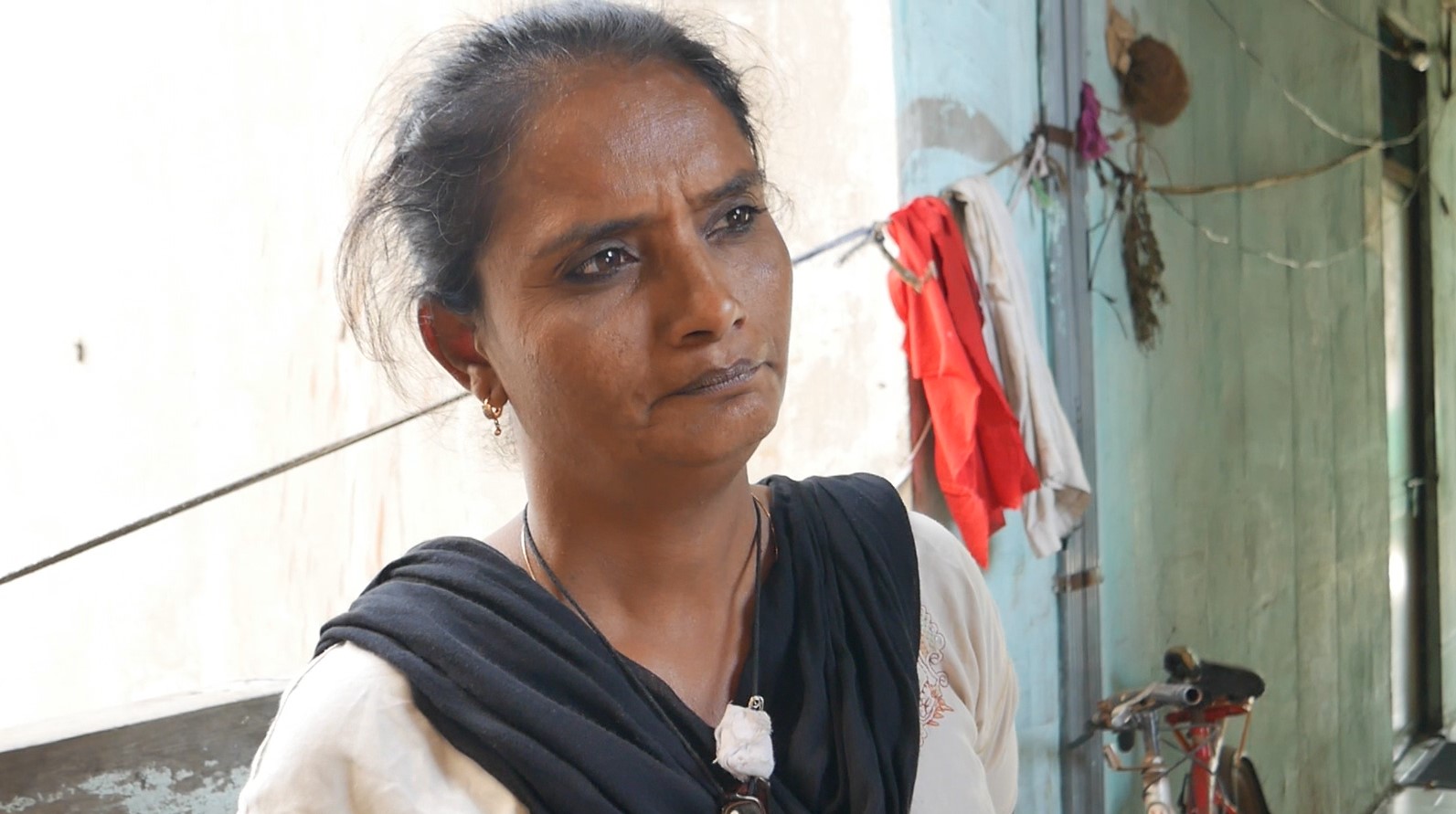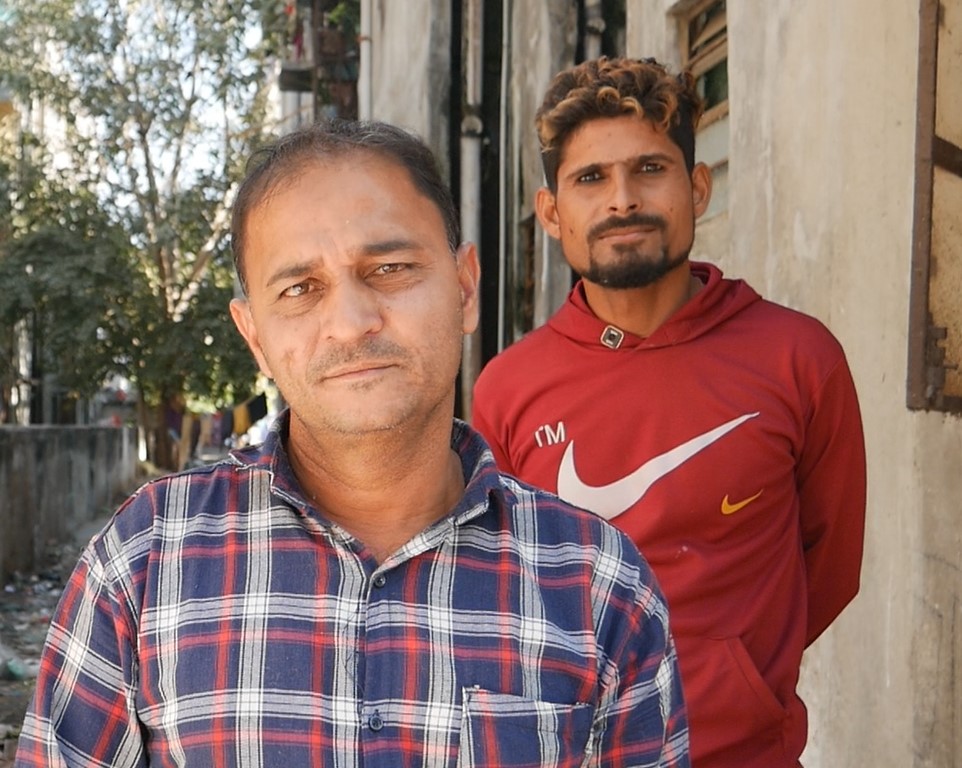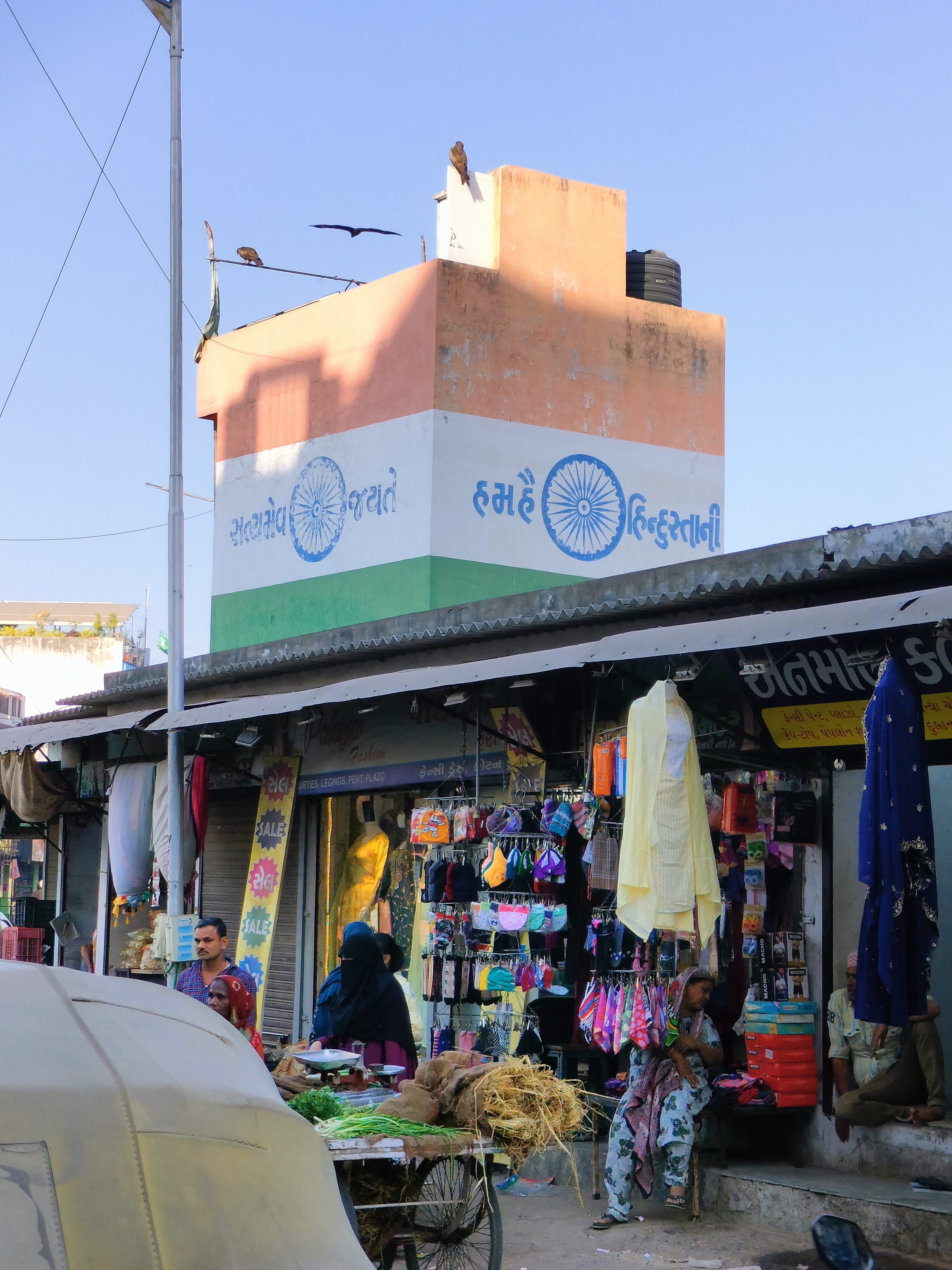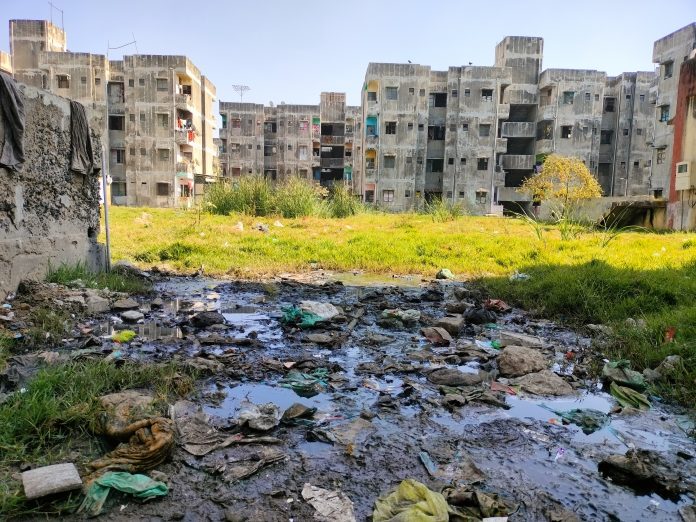Local Muslims residing in the ghettos of Vatva and Ajit Mill complained about negligence from government officials and elected representatives.
Aquilur Rahman and Vipul Kumar | TwoCircles.net
AHMEDABAD (GUJARAT) — During the 2014 general elections, when Narendra Modi introduced the Gujarat development model to Indian voters for the first time with the slogan “Sabka Saath, Sabka Vikas,” it was widely advertised as a sign of departure from corruption and misgovernance of the previous regime.
Modi talked about the rejuvenation of the river Ganga on the lines of the Sabarmati Riverfront, which today, is a hangout haunt for city dwellers of Ahmedabad; a safe and clean space with bustling economic activity. However, the project has been criticized for its impact on society and the environment, including the issue of displacement of thousands of families affected by the project.
“Picked from the garbage, dropped in the gutter”
The flashy lights go dim as the colourful decorations over the Atal Bridge fail to reflect from the stagnant waters of a once perennial Sabarmati river at the point where the smooth and broad roads merge into the narrow sludgy lanes of Vatva, Behrampura, Dudheswar and Ajit Mill, mainly consisting of people who used to live in and around what’s now known as the Sabarmati Riverfront. These contrasting visuals tell the untold story of Ahmedabad’s slums where many people like the 45-year-old Shabana Bano live. She was evicted over 10 years ago with the hope of finding better living conditions than her humble hut along the banks of Sabarmati.

Locals say that things have changed a lot from what was promised back then. The entire Chaar Maaliya situated on both sides of the Narol-Vatva Road was never painted and the four-floor buildings now give a sense of the living conditions and demarcation of Muslims residing in these areas. “Our huts near the riverfront were much better than what we have been provided in Vatva. It has been 10-12 years since we shifted here but the problems of clean water, drainage, cleanliness and electricity persist,” Bano told TwoCircles.net.
“It is like we were picked up from the garbage and dropped in the gutter,” Bano said, with palpable dejection visible across her face.
Many local Muslims residing in the ghettos of Vatva and Ajit Mill complained about negligence from government officials and elected representatives. They alleged that the Amdavad Municipal Corporation (AMC) officials refrain from coming into their areas even after multiple complaints are made.
“Calls made to the medical emergency hotline 108 are neglected and ambulance services are not provided in the areas,” Amjad Khan Pathan, a resident of Vatva said.
TwoCircles.net sent an email to AMC officials seeking clarifications over the allegations of discrimination raised by the locals. The story will be updated as and when the reply is received.

“Sorry, Mohammedans (Muslims) are not allowed”
Juhapura, one of India’s largest Muslim ghettos, was habilitated in 1973 by former Prime Minister Indira Gandhi for the people who lost their homes in the flood. A neighbourhood in the New West Zone of Ahmedabad along NH 8A that goes towards Saurashtra and Kutch is now home to over 5 lakh population, mainly Muslims, that shifted here after a series of riots and natural calamities between 1985-2002.
Disturbed Area Act, 1986 brought by the Indian National Congress (INC) government as an ordinance after the communal riots in 1985 was supposed to bring peace and calm to the area. However, the act, according to the locals, holds them in one place and restricts their movement to any other locality.

Ali Hussain Vohra recently challenged the act in Gujarat High Court, alleging that it violates the principle of natural justice. “The provisions in this law provide that the authorities are not required to invite objections from the public before declaring an area as communally disturbed,” the petition stated.
Idris, a resident of the Juhapura area, shared an incident in which he inquired about renting a flat in the Gujarati (Hindu) area to see if a change of location could improve his living conditions.
He was allegedly refused to take lodging and told, “Sorry, Mohammedans (Muslims) are not permitted.” The conditions have remained consistent for a long time, and the residents have grown accustomed to them.
Rafeeq, another resident of Juhapura, said it is a mutual feeling among the locals of Ahmedabad. The refusal of accommodation or the fear of having a neighbour of a different community is hardly acceptable to the people. He also expects no change to happen either through voting or any movement. “The one who has power, rules accordingly,” Rafeeq said.
Locals said that MLAs don’t visit the area and “there is no one to look after their needs.”
A Pan shop owner in Juhapura held the government responsible for the lack of amenities in their locality.
‘Zero representation has bred hopelessness’
On being asked about the changes being expected, a shopkeeper of Dariapur, another Muslim locality in Ahmedabad, on condition of anonymity said, “No matter what or who we vote for, the Bhartiya Janata Party (BJP) would eventually claim victory in the upcoming elections.”
According to him, even if any other party wins by any chance, he believes the Hindutva party would still establish its government as they did in the neighbouring Madhya Pradesh and Maharashtra, Karnataka or Goa. Despite Islam as the second most followed religion with approximately 9.67% population following it, Muslims have been denied representation in any ministerial position in the government since 1998. The last time any Muslim candidate was fielded by the incumbent BJP was in 1998. The party has since continued its legacy of fielding zero Muslim candidates in the ongoing assembly elections as well.
Congress, on the other hand, has fielded six candidates for the 2022 elections. In comparison to 1980, when 12 Muslim candidates were elected, better representing the size of the minority group’s population, there has been a significant drop in the number of candidates fielded by the national party. Since 2002, INC has not fielded more than six Muslim candidates from the state.
The debutant Aam Aadmi Party (AAP), which recently won elections in Punjab with a clear majority, has just two Muslim candidates – one each from Dariapur and Jambusar.
Lack of basic human living conditions
On being asked if they think this negligence and underdevelopment is because of their identity, Pathan said, “I do believe this can be the reason as we get tired of making calls to the officials but no one pays heed to our complaints.” Sajid, another resident of Vatva, agreed with Pathan and said, “Hindu localities are clean but Muslim areas are neglected.”
Rafeeq, Juhapura mentioned that people of his locality work in the morning and eat what they can make. They expect nothing more than calm and peace in the city.
Unemployment, inflation and education do find a passing mention in the conversations but people had little hope for the present in the state. Infrastructural developments and basic living conditions on par with their Gujarati Hindu neighbourhoods are the major concern for the Muslims in the area.
As criticism of the growing culture of hate speech and violence against religious minorities in India grew louder over the years, Modi added two new words to his already popular slogan—Sabka Vishwas—everyone’s trust.
However, the perpetual feeling of alienation in the Muslim community in Ahmedabad raises questions about the state of Gujarat’s development model propagated all across the country.
Aquilur Rahman is a freelance journalist based out of New Delhi. He tweets at @AQuill_inscribe
Vipul Kumar is a freelance journalist and a student at the Faculty of Law, University of Delhi. He tweets at @vipulizm


